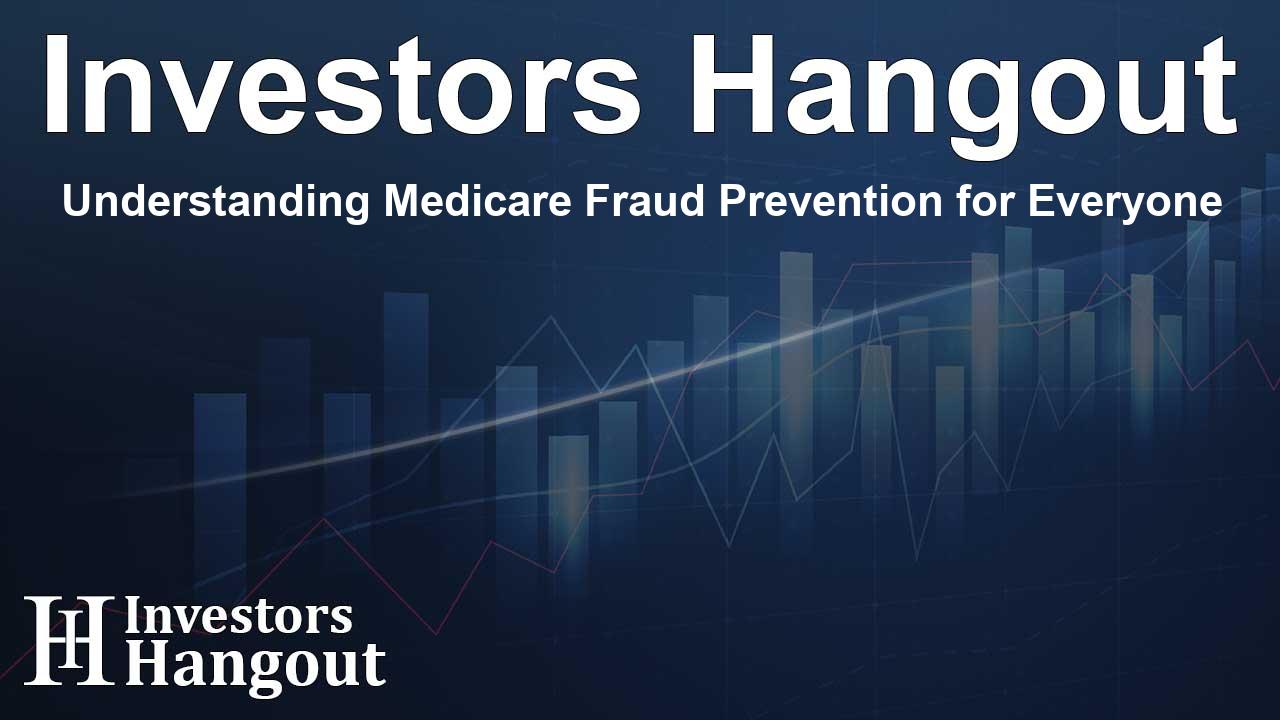Understanding Medicare Fraud Prevention for Everyone

Understanding the Importance of Medicare Fraud Prevention
Fraud is a significant issue that costs Medicare an astonishing $60 billion annually, affecting not just the program but also the lives of countless beneficiaries. This alarming statistic, highlighted by organizations focused on senior advocacy, underscores the need for a robust approach to safeguard Medicare recipients from fraudulent activities.
Impact of Medicare Fraud
Medicare fraud results in immense stress for beneficiaries, who may lose their medical identities and face potential health risks. This not only strains the individual but also impacts families and caregivers, who often find themselves helping loved ones navigate the aftermath of fraud. Understanding and addressing this problem is crucial for everyone involved in the healthcare system.
Empowering Beneficiaries
Maria Alvarez, an Executive Director from a leading senior action council, emphasizes the devastating effects of fraud on both individuals and the Medicare program. The organization’s effort to educate individuals is pivotal for preventing such fraud. Training on how to recognize and mitigate fraud helps protect not just the current beneficiaries but ensures the program can operate effectively for future generations.
Join Us for Medicare Fraud Prevention Week
From June 2-6, the Senior Medicare Patrol (SMP) will host Medicare Fraud Prevention Week. This initiative is designed to help educate individuals about protecting themselves and their loved ones against fraudulent activities. It’s a vital opportunity for community members to engage and empower one another through knowledge and actionable strategies that can mitigate the risks associated with Medicare fraud.
What to Expect During the Week
During this week, expect to learn about best practices for safeguarding Medicare information and understanding the types of fraud that exist in healthcare. The SMP offers resources and programs aimed at not only increasing awareness but also providing the tools necessary for beneficiaries to remain vigilant.
Examples of Medicare Fraud
Healthcare providers sometimes engage in fraudulent activities that can harm patients and undermine the program. Some common examples include:
- Billing for services not rendered: Providers may charge for services or supplies that were never provided to patients.
- Misrepresentation: This includes falsifying diagnoses or client identities to justify unnecessary costs.
- Unnecessary tests: Ordering excessive tests and procedures that are not critical to patient care.
Steps to Prevent Medicare Fraud
To combat Medicare fraud, here are three essential steps recommended for every senior and caregiver:
- PREVENT: Always read your Medicare statements thoroughly to understand what services were billed.
- REPORT: If you suspect any irregularities, contact the Senior Medicare Patrol immediately.
- DETECT: Be alert for unfamiliar provider names or services on your bill.
Active Participation Matters
Combating Medicare fraud requires engagement from various stakeholders:
- Beneficiaries: Monitor your statements for accuracy and ensure that services align with what you received.
- Caregivers: Look out for any unsolicited medical equipment sent to clients and remind them to keep personal information safe.
- Families: Encourage discussions about safeguarding Medicare numbers, just as you would other sensitive information.
- Healthcare professionals: Teach patients about scams and reinforce that orders should only come from trusted physicians.
- Community members: Be observant of suspicious behaviors among older neighbors, offering support and sharing knowledge about fraud prevention.
Resources Available
The Senior Medicare Patrol is ready to assist with essential information on protecting against fraud, reporting concerns, and identifying potential issues. They provide educational presentations and resources to help empower beneficiaries.
Get Involved
For further inquiries related to Medicare fraud or related issues, you can contact the SMP hotline. Trained counselors are available to provide assistance with Medicare benefits and to offer guidance on navigating the complexities of Medicare fraud.
Frequently Asked Questions
What is Medicare Fraud Prevention Week?
It's an initiative designed to educate beneficiaries on protecting themselves from fraudulent activity affecting Medicare.
How can I recognize Medicare fraud?
Fraud may include billing for unprovided services, excessive tests, or unexpected charges on your Medicare statement.
Who can I contact if I suspect Medicare fraud?
You should reach out directly to the Senior Medicare Patrol for assistance and reporting.
What steps can I take to prevent fraud?
Regularly review your Medicare statements, report any discrepancies, and always safeguard your Medicare details.
How does one participate in Medicare Fraud Prevention Week?
Join the community activities and programs sponsored by the Senior Medicare Patrol, and utilize available resources offered during this week.
About The Author
Contact Lucas Young privately here. Or send an email with ATTN: Lucas Young as the subject to contact@investorshangout.com.
About Investors Hangout
Investors Hangout is a leading online stock forum for financial discussion and learning, offering a wide range of free tools and resources. It draws in traders of all levels, who exchange market knowledge, investigate trading tactics, and keep an eye on industry developments in real time. Featuring financial articles, stock message boards, quotes, charts, company profiles, and live news updates. Through cooperative learning and a wealth of informational resources, it helps users from novices creating their first portfolios to experts honing their techniques. Join Investors Hangout today: https://investorshangout.com/
The content of this article is based on factual, publicly available information and does not represent legal, financial, or investment advice. Investors Hangout does not offer financial advice, and the author is not a licensed financial advisor. Consult a qualified advisor before making any financial or investment decisions based on this article. This article should not be considered advice to purchase, sell, or hold any securities or other investments. If any of the material provided here is inaccurate, please contact us for corrections.
